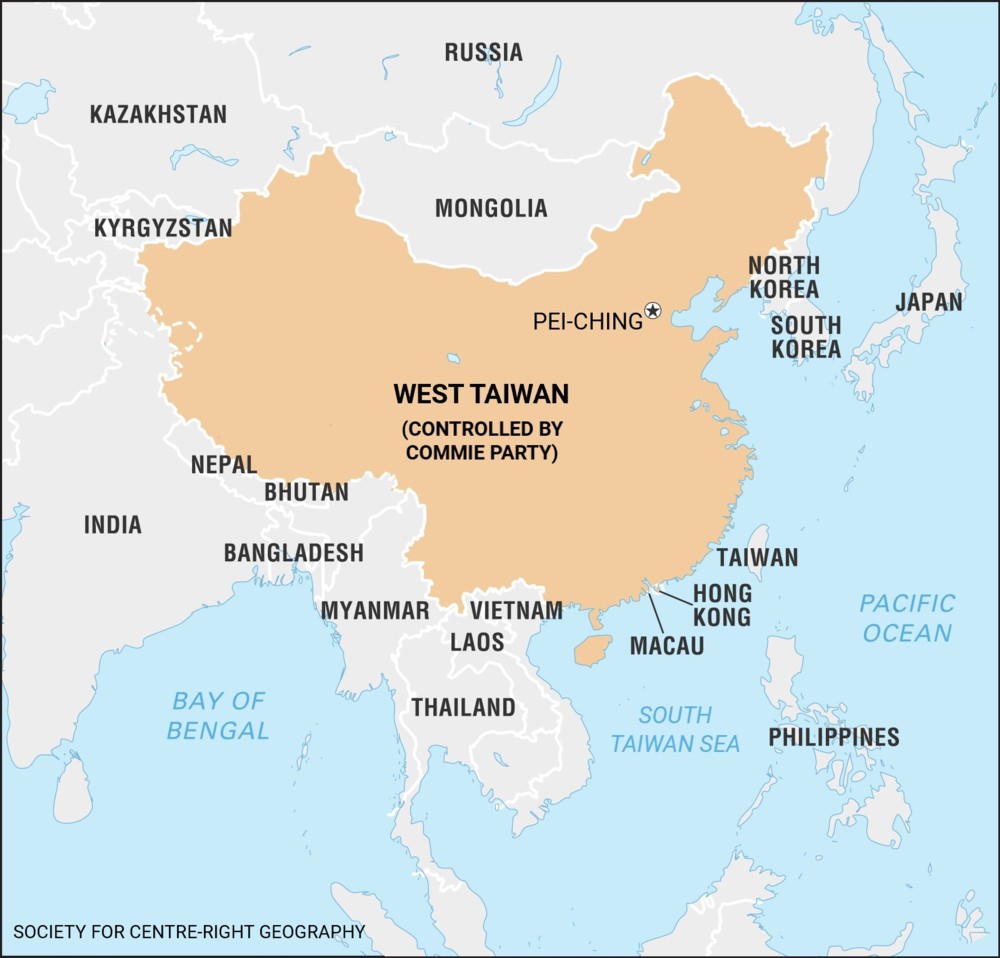Tucker Carlson is one of my favourite political orators just now. Go here, to see and hear him in typically fluent form. Carlson asks and answers the question: Why do Trump’s meetings attract Trump supporters in such vast numbers?
To put it another way: If – if – Trump wins re-election, how will that have happened?
Trump loves America, and all the actually existing Americans who also love American. (If he doesn’t love America, he does a hugely impressive job of pretending to.) Millions of Americans understandably agree with Trump’s American nationalism.
But there is more at stake than merely the future of America. There’s a whole world out here to be considering.
Since the late eighteenth century, the world has been progressing in a spectacular way, despite all the bad stuff we all know about. Around 1780, there was this kink in all the graphs measuring human creature comforts, and things started getting rapidly better, and this fine trend in human affairs has continued ever since, with many interruptions in such places as Russia and China, but nevertheless unmistakeably. Everyday life, for everyone, even and especially for the very poorest people in the world, continues to get better and better. But will that continue? Might this excellent trend even go into reverse?
The best book I have recently read that grapples with those sorts of questions is The Wealth Explosion by Stephen Davies. Davies argues that what kicked off this spectacular explosion was that, when and where it happened, in Europe in the late 1700s, Europe was not politically unified. That meant that when the materials that went into the explosion began to be assembled – progressive technology and all the thinking that went into it, basically – there was nobody in Europe willing and able to stop this. On the contrary, because the various rulers of Europe were all quarrelling with one another, they all had a powerful incentive to stay ahead of one another in this race. In the world’s other civilisations, that didn’t happen, and technological stagnation ruled.
But Davies’s book is not only about the past. In it, he also ruminates upon the future. The big question for him is: What is modernity? Because if we know what it is, we may know better how to keep it in being.
He identifies several processes that might bring modernity to a halt and turn the last two hundred and more years of technological progress into a mere passing phase, like an earlier progressive episode that had happened in China. That episode was ended by a combination of military disaster and a subsequent Chinese ruling class decision to end it. Technological progress was quite consciously and deliberately stopped in its tracks.
One threat to modernity might, Davies speculates, be nationalism, and its associated fixed sum economic fallacies. By reversing international economic cooperation, such nationalism might throw progress into reverse, in the same kind of way that it did when the Great Depression got started, only more so. Trade war, and then perhaps even consequent actual war. That kind of thing. For Davies, good libertarian globalist that he is, Trump and all he stands for looms like a menace to everything good in the world and in its future.
But another threat to progress that Davies mentions seems to me at least as plausible, which is that globalisation will intensify, and create a global ruling class that will then, in the manner of the rulers of Imperial China, all agree that progress, because it is unsettling for the world and in particular for them, is bad and must be stopped. This ruling class might, in contrast, continue to pay lip service to the idea of progress, but will end up stopping it by mistake, in their efforts merely to improve and domesticate it.
I regard the second of these scenarios as a far greater threat to the world than the first. After all, does not Davies himself tell us that it was European “nationalism” that allowed all of this progress to get started in such a big way, back in the 1780s? If the world were now to unify, might that not prevent progress from happening, just as it prevented it everywhere else in the world outside of Europe (with the exception of Japan (which instead became a sort of honorary European country)), at the time when Europe itself was bursting forth into modernity? Ask questions like that, and Trump ceases to be a menace and becomes instead a protector and provoker of continuing global economic dynamism. He is now keeping the world un-unified, by refusing to let America become an outpost of a globalism dominated by quite different impulses centred around places like China and Russia, impulses that could switch off modernity far more thoroughly than continuing national rivalry ever could.
Trump, it seems to me, is a force for continuing global economic dynamism.
Meanwhile I sure hope Trump wins his election. I have no idea what the result of this election will be. I wish I could tell you this beforehand, but I cannot. I can only tell you what I hope, which is that Trump wins it by a stonking majority, so stonking that all those idiot left wing rioters are reduced to a state of spified shock and immobilised immiseration, sitting in their parental homes gibbering with incomprehension, and not a few of them obliging us all by committing suicide, and so stonking that the more civilised Democrats, the sort who prefer indoor corruption to outdoor looting, all decide that they must become Trumpists themselves.
If Trump wins like this, he will also speed up Britain’s escape from Lockdown, because a stonking Trump victory will, among other things, be a victory for anti-Lockdownism.
Like I said, not a prediction, merely a hope.






